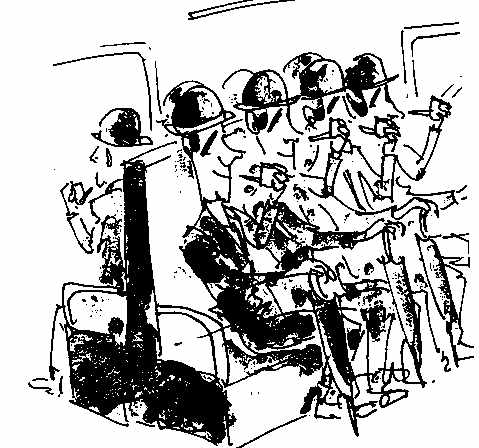 |
|
"Do you think they'll know we're English?" * |
Real Cultural Differences
by Annie Manuka
Diversity, by its nature and by definition, means variety. It is the case, more often than not, that miscommunication is neither wilful nor malicious. It often stems from ‘innocent’ or ignorant stereotyping (we ALL do it!) about differences of culture, class, race, etc. I lean towards the notion that ignorance is not a sin, it is just a state of not knowing.
Incentives and rewards appropriate in one cultural group may be ineffective or even completely counter-productive in another. When trying to motivate people, be willing to explore cultural ‘norms’ by finding people willing to discuss culture differences.
Family commitments vs. work; deference to authority as opposed to mutual respect and participation; group involvement rather than individual effort; past performance valued more than future potential – these subtle differences may be culturally biased, and can improve or impair cross-cultural communication.
For many people the Englishman abroad, formally dressing for dinner in sweltering heat, was a pitiful sight! For the Brit it was a cultural norm – a source of pride and identity. Culture is located in both historical and geographical contexts. We all have our roots and branches; many British born people have values and behaviours rooted in other parts of the world and these affect Identity.
 |
|
"Do you think they'll know we're English?" * |
Environment, behaviours, fashion, beliefs, habit and other historical factors contribute to our cultural norms, which are modified as a response to circumstance. Some new patterns work, others don’t, but they join with older customs and become the cultural ‘norm’.
Respect for differences, and equal treatment does NOT mean treating people all the same. Equality isn’t bland sameness! ‘Equal opportunities’ requires an intelligent response to reality. Responding to people according to their needs and potential.
Each person is an individual. Membership of a group does not necessarily mean representing that group. One black person cannot speak for all black people and no one woman speaks for all of womankind. The white supremist does not act on behalf of all white people. The Asian is not an expert on all aspects of Asian culture. Our uniqueness comes from our differences of class, gender, ability, pigmentation, orientation and so on.
Not every problem is a cultural problem! Sensitivity to cultural issues risks seeing everything through the cultural filter. Some people – black, white, male, female, of different abilities, heterosexual or homosexual, old or young, some people are neither nice nor competent. Some are lazy, vindictive, dishonest, spiteful, just as others are nice, caring, supportive, decent and responsible. The bad ones may get better, and they may not! OUR offence may be to deny them the chance to develop and grow, on the basis of skin colour, genitalia or mobility.
To
use our differences as an excuse for avoiding challenging or confronting
where appropriate or necessary is to relinquish authority and
responsibility. It may also be a denial of reality, a betrayal of friendship a
loss of integrity and a wasted opportunity.
![]()
*Thanks to Francisco Jimenez of Madrid for permission to reproduce this cartoon originally shown in the GESeaCo house magazine. [Ed.]
![]()
BIODATA
Annie Manuka is a personnel officer in a fairly large company in Bristol, managing a team of four. In her thirties, she is a divorced mother of two: boy aged 13 and girl of 11. She tells us that since her divorce she has spent a lot of time thinking about herself as a separate entity, rather than her official roles (mother, daughter, wife, manager, etc.) and she looks forward to contributing more to Nurturing Potential.